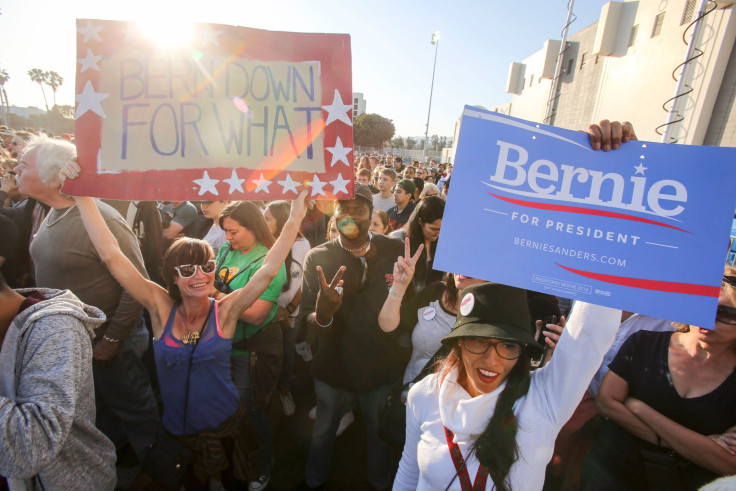Bernie Sanders: ‘Not Surprised’ By Hillary Clinton’s Turnaround On Another Debate Before California Primary

First there were six, then there were 10 and then there were nine.
Democratic U.S. presidential candidate Bernie Sanders called opponent Hillary Clinton’s decision to back out of a previously planned 10th debate both disappointing and unsurprising.
The two candidates agreed in February to add four more debates to the then-anticipated six as they expected a drawn-out nominating-season battle to go down to the wire. But with the former U.S. secretary of state’s current delegate count all but guaranteeing her the nomination over the senator from Vermont in Philadelphia next month, Clinton has pivoted to the general election and refocused her sights on presumptive Republican nominee Donald Trump.
“I am disappointed but not surprised by Secretary Clinton’s unwillingness to debate before the largest and most important primary in the presidential nominating process,” Sanders said in a statement Monday, responding to her decision earlier in the day to bow out of a debate before the California primary election June 7. “I hope Secretary Clinton reconsiders her unfortunate decision to back away from her commitment to debate.”
I am disappointed but not surprised by Secretary Clinton’s unwillingness to debate before the largest primary. https://t.co/tQPIWppgEM
— Bernie Sanders (@BernieSanders) May 24, 2016
Sanders also reiterated his stance that his rival is not as assured of victory as she believes. He is betting an upset in California would lure away many of Clinton’s superdelegates.
As of Monday night, Clinton had the backing of 525 of these powerful party insiders who can vote for either candidate at the Democratic National Convention July 25-28 while Sanders had the support of just 39 of them, according to RealClearPolitics.
It is a much tighter race among regular delegates, with Clinton having won 1,768 and Sanders having won 1,497. A total of 2,382 votes is needed to secure the nomination.
The last six states will hold their presidential-nomination contests June 7, but California is by far the most important with 475 Democratic delegates at stake, as well as 71 superdelegates.
In an interview with the Associated Press Monday, Sanders called on establishment Democrats to embrace the call of his supporters. Specifically, he said he hopes the party establishment will adopt a platform that speaks to the needs of the working poor and the young over the corporate interests.
“I think if they make the right choice and open the doors to working-class people and young people and create the kind of dynamism that the Democratic Party needs, it’s going to be messy,” Sanders said. “Democracy is not always nice and quiet and gentle, but that is where the Democratic Party should go.”
The senator stepped up his condemnations of violence after outbursts by backers who protested that rules at a Nevada party convention this month were changed at the last minute without notice. This led several mainstream news outlets, such as CBS News, MSNBC and the New York Times, to inaccurately report that his supporters were seen throwing chairs at the event. However, local authorities did investigate anonymous phoned-in death threats made against state Democratic office holders.
Sanders repeated his previous statements on this point during his latest interview with the AP, saying he will “condemn any and all forms of violence.”
© Copyright IBTimes 2024. All rights reserved.












